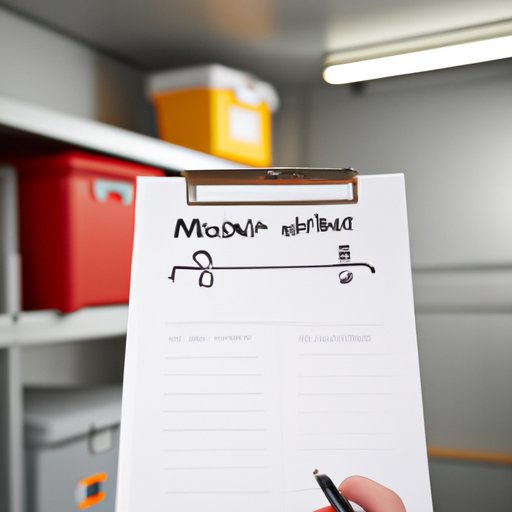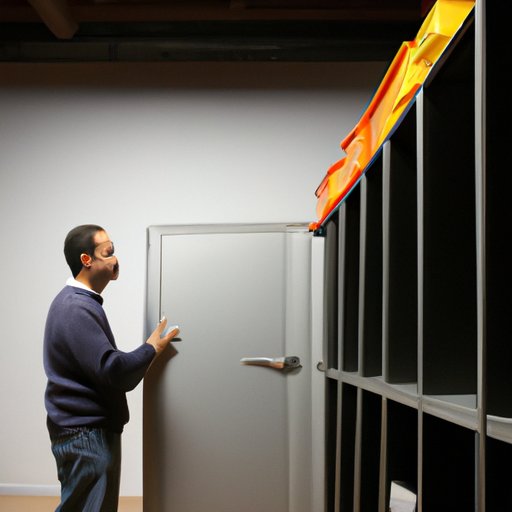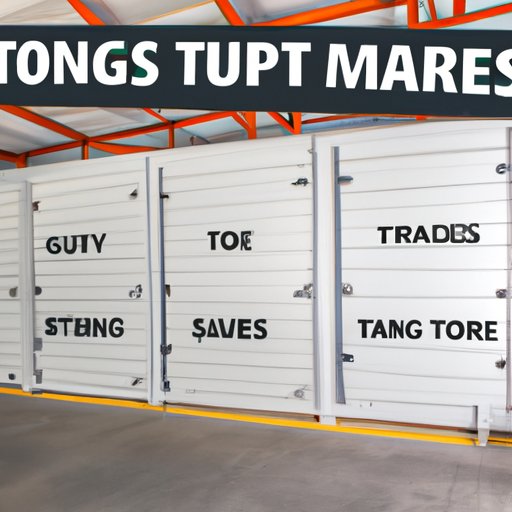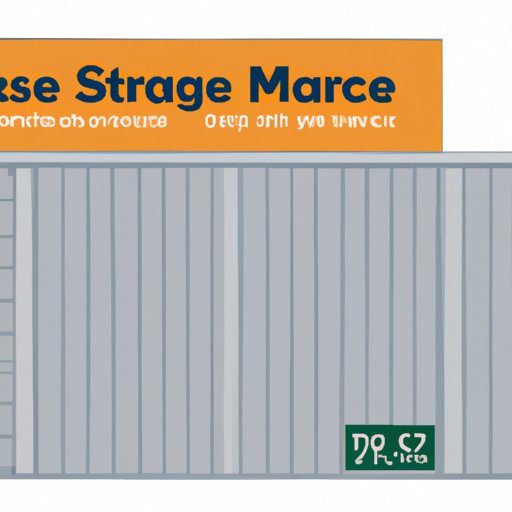Overview of Average Storage Unit Prices by Location and Size
Storage units can be a great way to free up space in your home or business. They’re also a convenient option for storing items while you’re in between moves or renovating. But it’s important to know what goes into determining the cost of a storage unit before you commit to a rental. Depending on the size, location, and other factors, the cost of a storage unit can vary significantly.
Factors That Affect Prices
The two biggest factors that determine the cost of a storage unit are location and size. Storage facilities in more densely populated areas tend to cost more than those in rural areas due to higher demand. The size of the unit is also an important factor, with larger units costing more than smaller ones. Other factors that can affect the cost include amenities such as climate control, security features, and the availability of drive-up access.
Examples of Average Prices
According to StorageSeeker.com, the average cost of a 5×5 storage unit in the U.S. is $45 per month. A 10×10 storage unit averages $90 per month, while a 10×20 storage unit averages $155 per month. These prices can vary significantly depending on the location and other factors, so it’s important to do your research and compare prices before making a decision.

Calculating the Cost of a Storage Unit Per Month
When calculating the cost of a storage unit per month, it’s important to take into account both the monthly rental cost and any additional fees that may be involved. Most storage facilities charge a monthly rental fee for the unit, which is usually based on the size of the unit. This fee will typically range from around $50 for a small unit to $200 or more for a large unit. In addition to the monthly rental fee, there may also be other fees involved, such as administrative fees, security deposits, and insurance fees.
Different Types of Storage Units and Their Costs
Storage units come in a variety of types, each with its own set of features and associated costs. Climate-controlled units are designed to maintain a consistent temperature and humidity level, making them ideal for storing sensitive items. They typically cost more than standard units, ranging from $60-$250 per month. Drive-up units offer easy drive-up access for loading and unloading, and they typically cost between $50-$150 per month. Portable storage units are a more cost-effective option, as they are delivered directly to your home or business, allowing you to load them at your own pace. They typically cost between $100-$200 per month.

How to Find the Best Deals on Storage Units
The best way to find the best deals on storage units is to do some research online. Compare prices and amenities at different storage facilities in your area to get an idea of what’s available. You can also call or visit the facility in person to ask about any discounts or promotions they may have. Don’t be afraid to negotiate with the manager to try and get a better deal.

Tips for Saving Money on Storage Unit Rentals
There are several ways to save money when renting a storage unit. Prepaying in advance is one way to save money, as many storage facilities offer discounts for prepayment. Look for discounts or promotions offered by the storage facility, such as a free month with a year-long rental. If you’re planning on storing items for a long period of time, consider signing a long-term lease to lock in a lower rate.
What Other Fees Are Involved With Storage Units?
In addition to the monthly rental fee, there are other fees that may be involved when renting a storage unit. Security deposits are typically required for most storage units, and the amount can vary depending on the size and type of unit. Administrative fees are also common and may include things like application fees, inspection fees, and key deposit fees. Insurance fees may also be required if you plan on storing valuable items. Finally, late payment fees may be charged if your rent is not paid on time.
Conclusion
Renting a storage unit can be a great way to free up extra space in your home or business. However, it’s important to understand the various factors that affect the cost of a storage unit, as well as the different types of storage units available. By researching online and negotiating with storage facility managers, you can find the best deals on storage units. There are also several tips for saving money on storage unit rentals, such as prepaying in advance and looking for discounts or promotions. Be aware that there may be other fees involved, such as security deposits, administrative fees, insurance fees, and late payment fees.
(Note: Is this article not meeting your expectations? Do you have knowledge or insights to share? Unlock new opportunities and expand your reach by joining our authors team. Click Registration to join us and share your expertise with our readers.)
